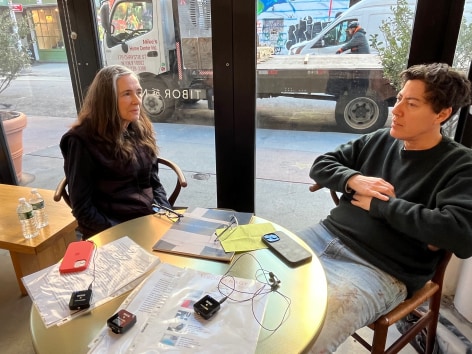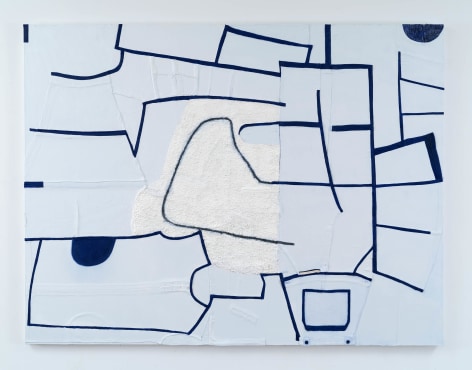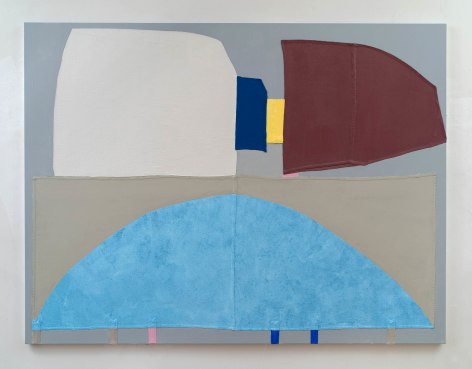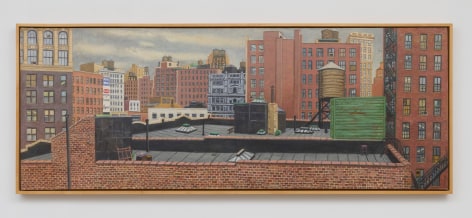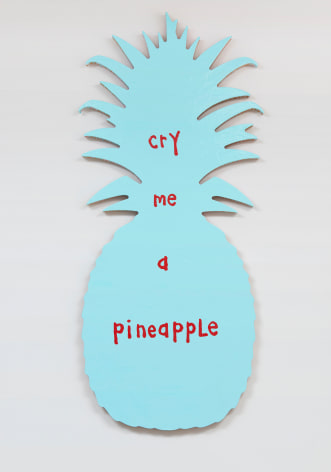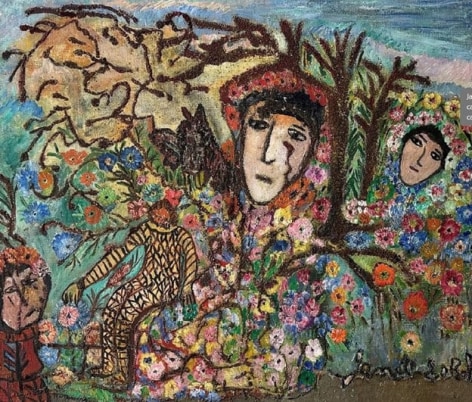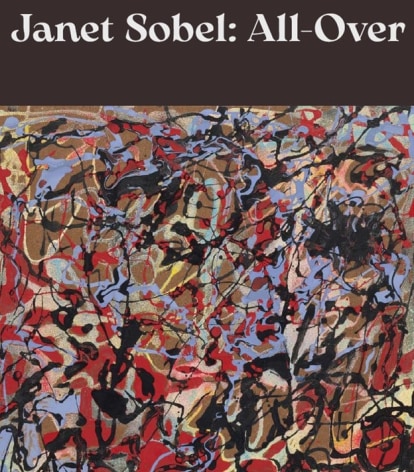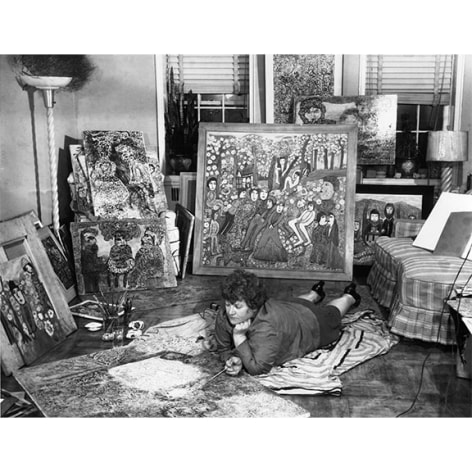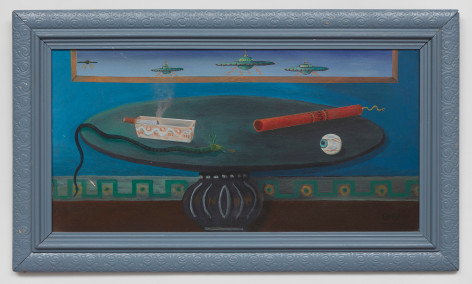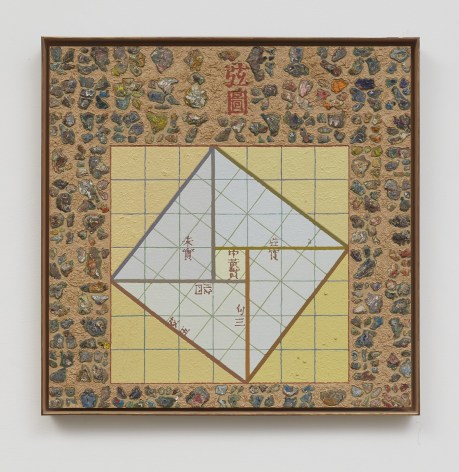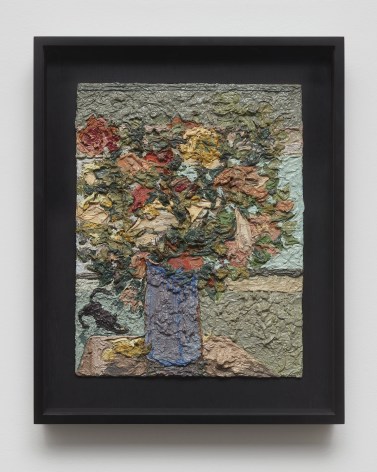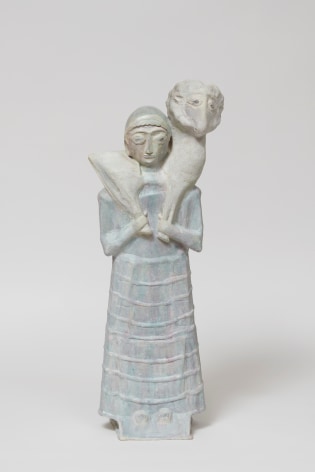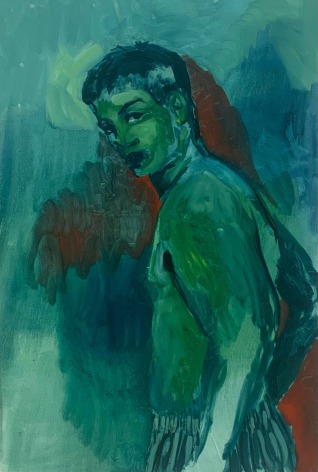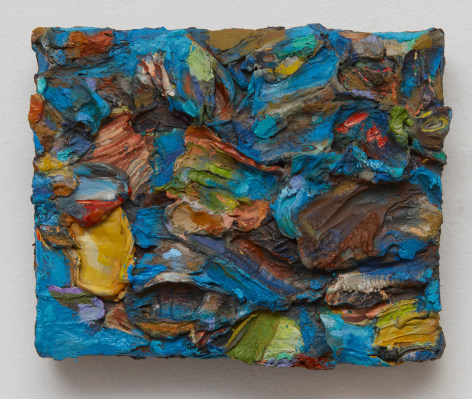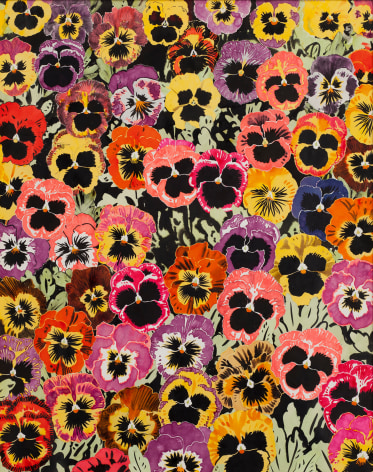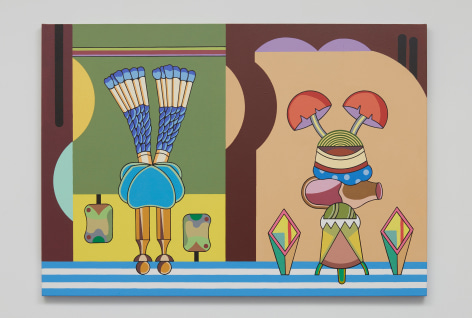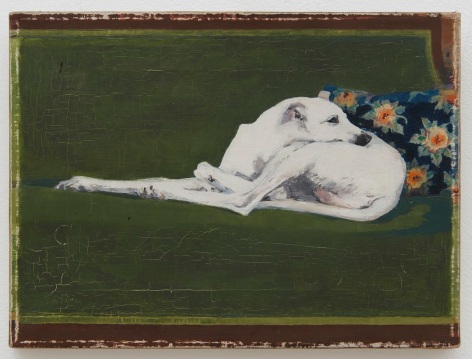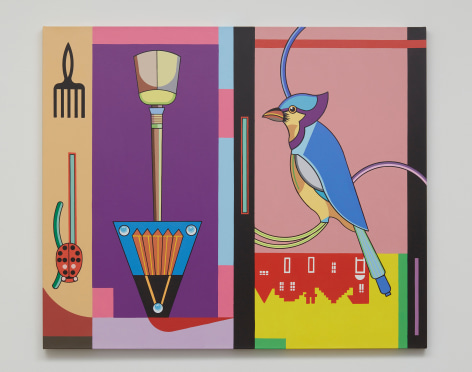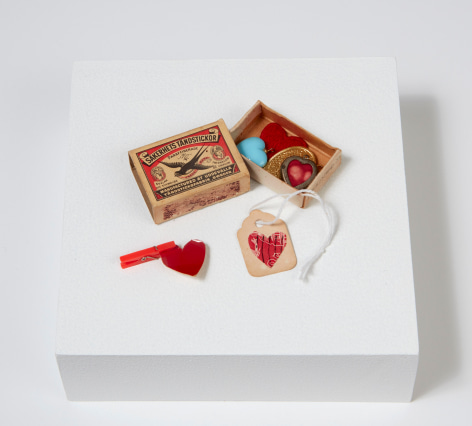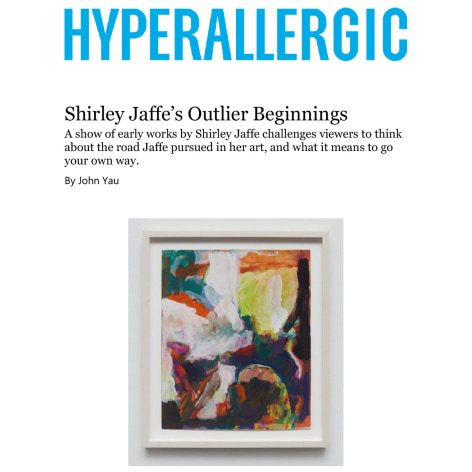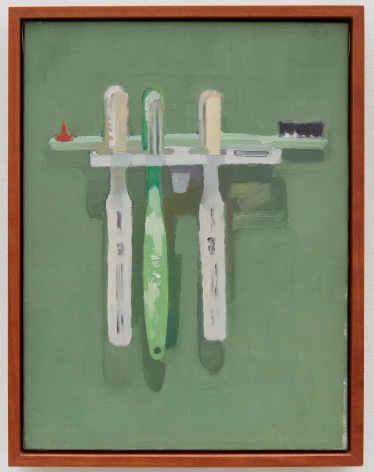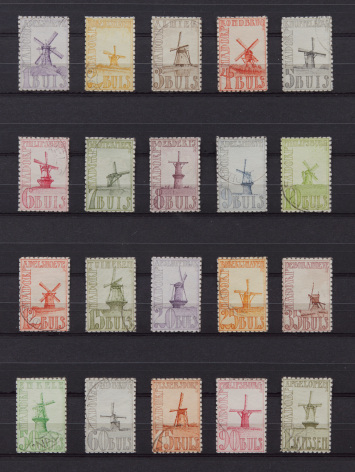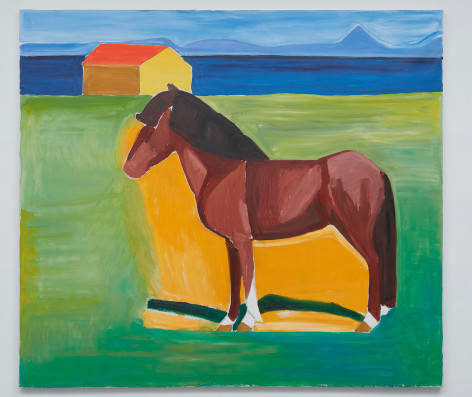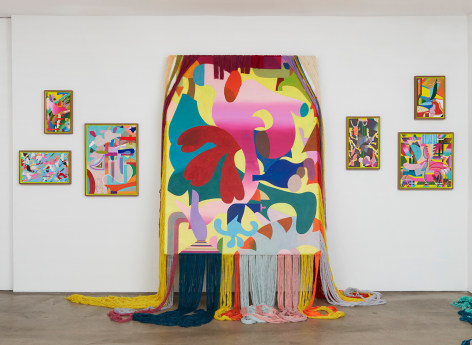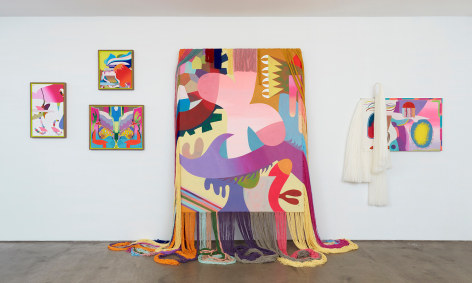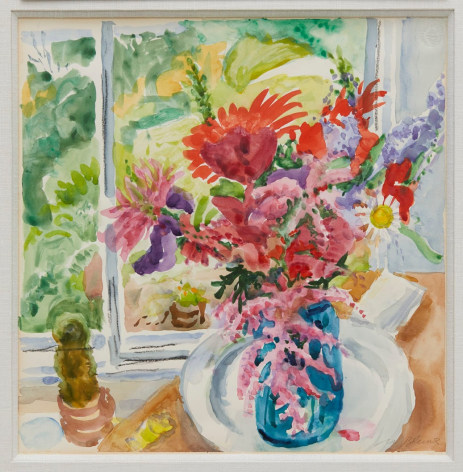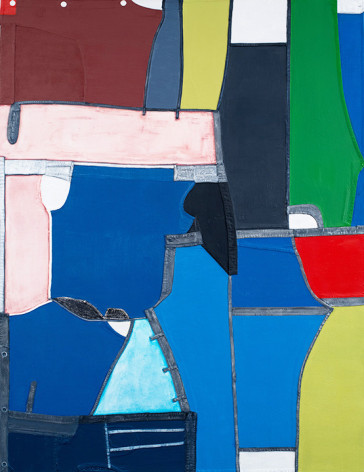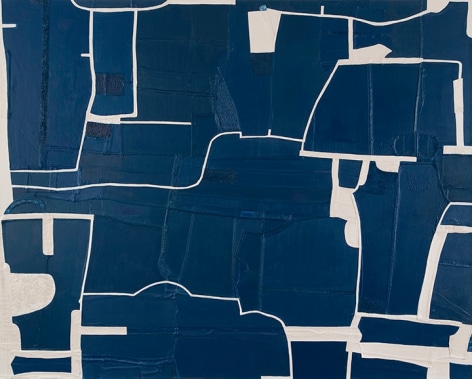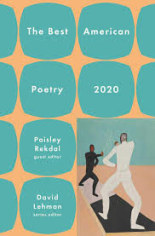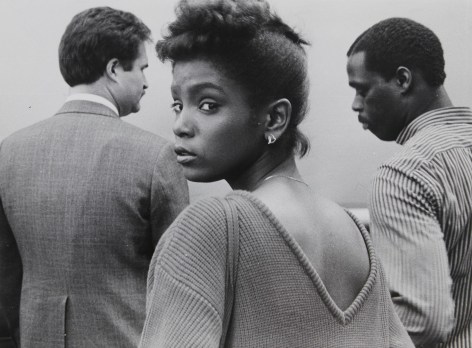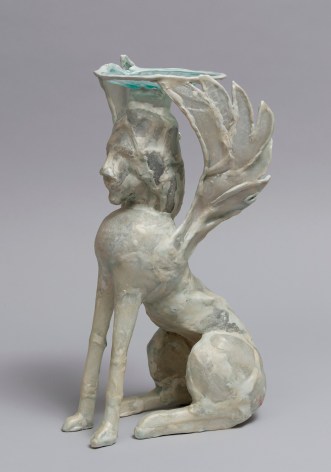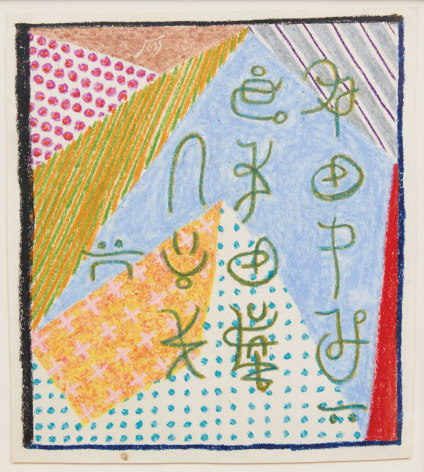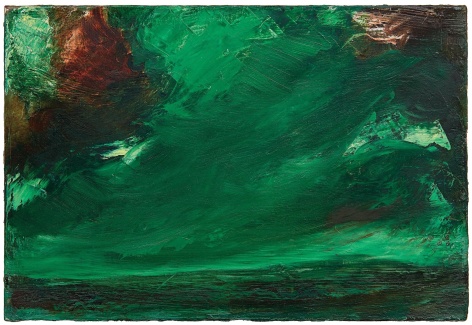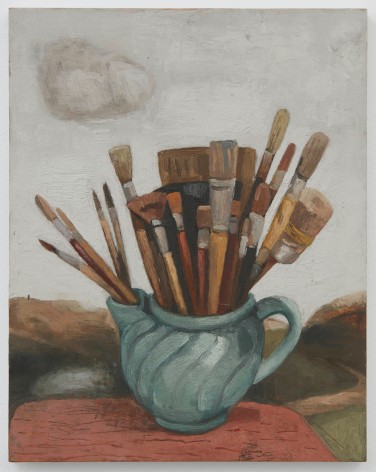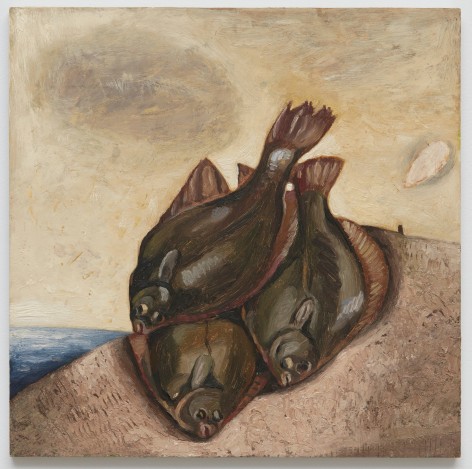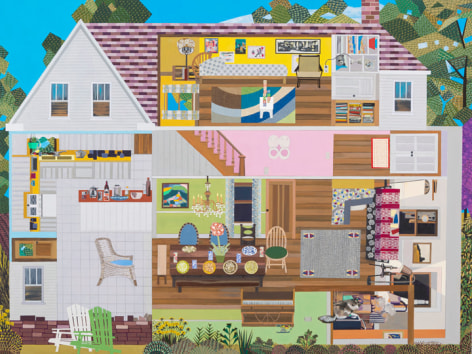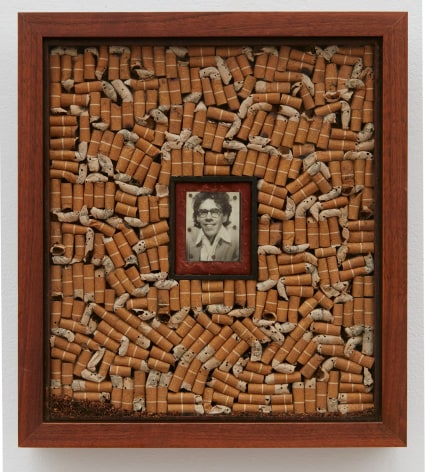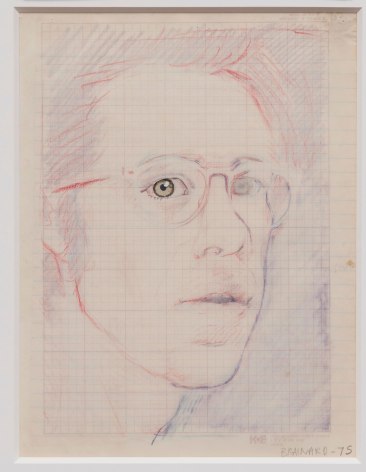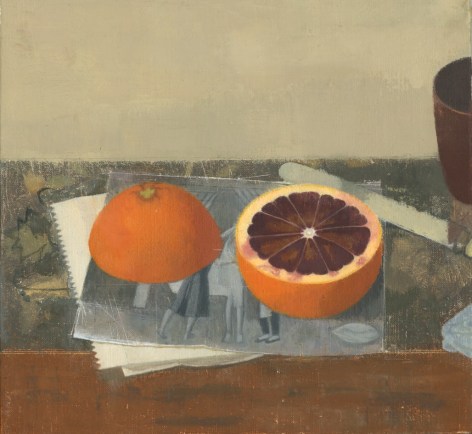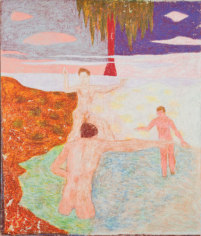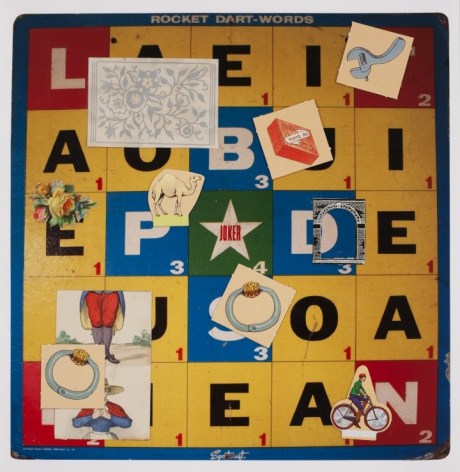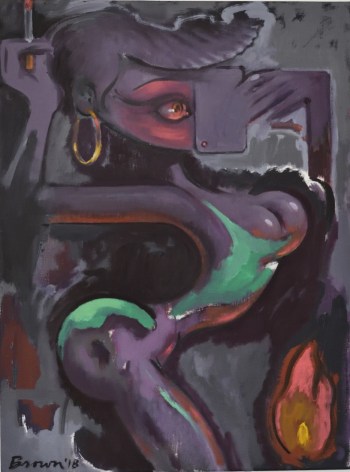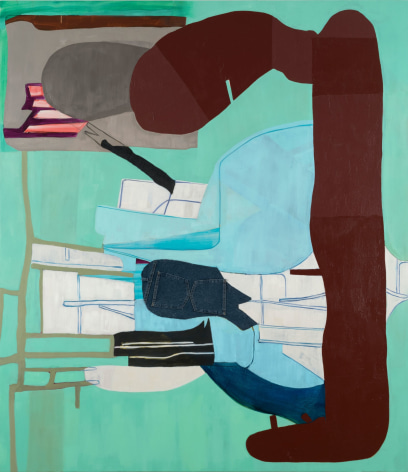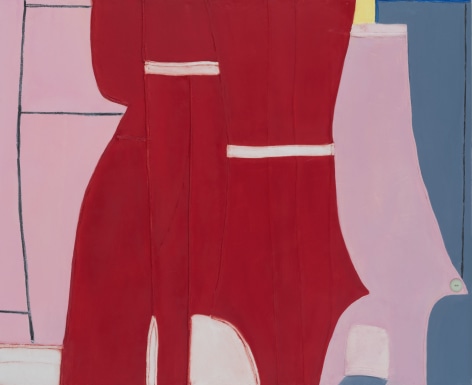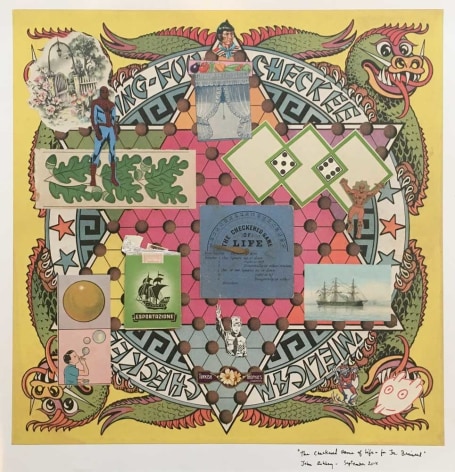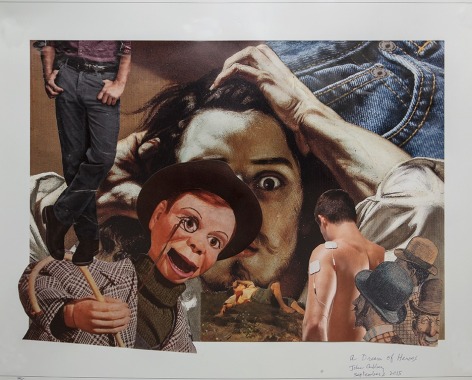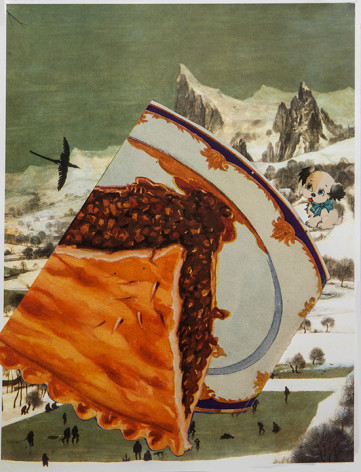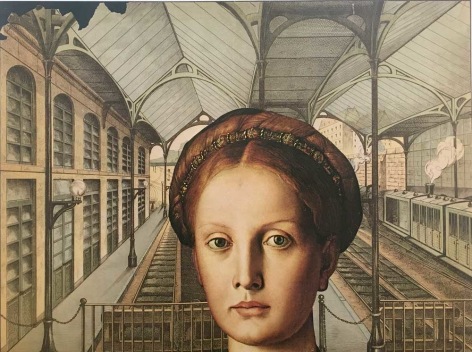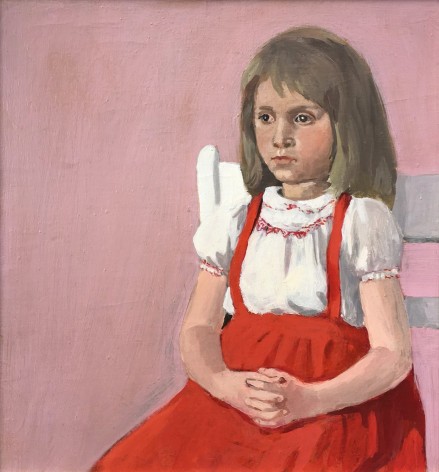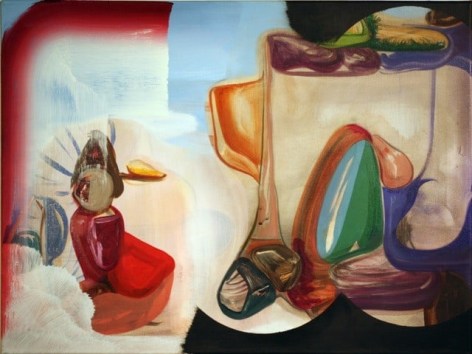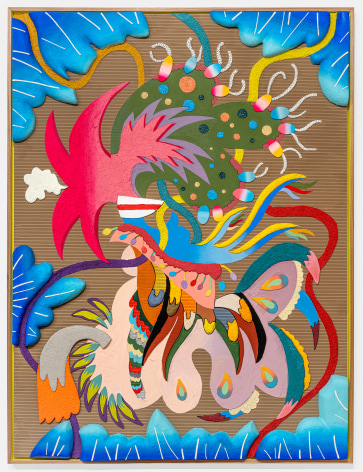
Assume Vivid Astro Focus
Through Oct. 11. Tibor de Nagy, 11 Rivington Street. 212-262-5050; tibordenagy.com.
Editors’ Picks
By Will Heinrich
Oct. 2, 2025
Assume Vivid Astro Focus, “Songbird Virus Songbird,” 2024, acrylic, textures and paper mache and
colored pencil on duplex sheet of corrugated kraft paper.
Lots of painters these days make their money on Instagram. And that platform, like the preview PDFs that galleries send to collectors, exerts a significant pressure to make work simpler, bolder and more graphic.
But mourning the subtleties of light and shadow that get lost in reproduction, aside from being depressing, makes you sound like a crank. A punchier argument for the need to see art in person is “Ablaze Vibrations Amplifying Fluidity,” a show of new paintings by the Franco-Brazilian collective Assume Vivid Astro Focus. (The collective, founded in 2001, has just two permanent members, and they largely work separately, but they remain committed to the name.)
Consider “Songbird Virus Songbird” (2024). With its explosive colors and shapes that resemble trees, flowers, cactuses, sperm, vines, a cartoon centipede and a multicolored bird, and installed here against understated custom wallpaper, it looks so good in reproduction that you might almost think it was made for the purpose.
What fails to come through on your smartphone screen isn’t subtlety, exactly, but detail: You get the color of the olive-green sepals, but not their matte texture or irregular brushstrokes. You can distinguish the green from the purple, but you’ll miss the slight variation in surface. You may or may not notice that the backing is corrugated cardboard, but you certainly won’t feel the pleasant tingling in your fingertips as you struggle not to touch the piece’s sparkling sequins or the blue foam cloud things at its corners.

